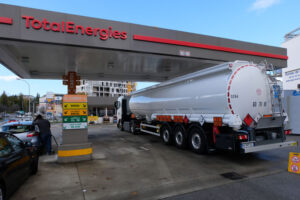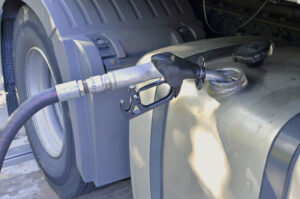Ensuring the oil and gas fleet safety stands as an imperative priority, notably amidst the intricate and unpredictable landscapes of remote extraction sites. Negotiating the distinctive challenges inherent to these environments demands a multifaceted strategy toward fleet safety. This entails the seamless integration of cutting-edge technology, robust training protocols, and meticulous adherence to compliance standards.
Navigating Harsh and Remote Locations
Navigating remote locales poses considerable hazards for oil and gas fleets, given the challenging terrain and limited access routes, often comprising rugged, unpaved roads that heighten the risk of vehicular incidents. The deployment of robust GPS tracking systems coupled with real-time monitoring emerges as a vital strategy to mitigate these risks. By ensuring proactive vehicle management and promoting adherence to the safest routes and driving practices, such measures bolster the overall safety and dependability of fleet operations amidst the inherent challenges of operating in isolated areas.
Mitigating Risks with Technology
The advancement of technology, particularly in telematics and AI-driven analytics, offers unparalleled opportunities to enhance oil and gas fleet safety. Real-time data on vehicle performance, driver behavior, and road conditions allows fleet managers to identify and address potential safety issues before they result in accidents or injuries. Integrating quality fleet management solutions is a proactive step towards safeguarding truck driver safety and ensuring the well-being of personnel.
Cultivating a Culture of Safety
An indispensable facet of guaranteeing fleet safety within the oil and gas sector is cultivating a culture deeply rooted in prioritizing safety above all else. This entails the implementation of thorough training initiatives, transparent dissemination of safety protocols, and active solicitation of feedback from drivers regarding their experiences and apprehensions. Such a holistic approach not only yields superior safety outcomes but also augments operational efficiency by minimizing downtime and preempting potentially expensive accidents, thereby fortifying the resilience and sustainability of fleet operations in this challenging industry sector.
Regulatory Compliance and Safety Standards
Adherence to industry regulations and safety standards is not merely a legal obligation but an essential element in upholding stringent safety protocols within oil and gas fleet operations. Routine inspections, meticulous maintenance routines, and the attainment of certifications are imperative to guaranteeing that vehicles remain in peak condition, capable of withstanding the rigors of demanding operational settings. Moreover, staying vigilant regarding regulatory updates is paramount, enabling companies to sidestep potential fines and penalties stemming from non-compliance while reinforcing a steadfast commitment to ensuring the safety and well-being of personnel and assets in this high-stakes industry.
At OnTrak Solutions, we understand the unique challenges faced by oil and gas fleet managers. Our comprehensive fleet management solutions are designed to address these challenges head-on. By leveraging cutting-edge GPS technology, real-time vehicle and driver monitoring, and proactive maintenance alerts, we help you ensure the safety of your operations, even in the most demanding conditions. Our focus on compliance and regulatory adherence further supports your efforts to maintain a safe and efficient fleet.
With OnTrak Solutions, you have a partner committed to enhancing the safety and productivity of your oil and gas operations. Let us help you navigate the complexities of fleet management in challenging environments, ensuring your drivers and vehicles are protected at all times.



